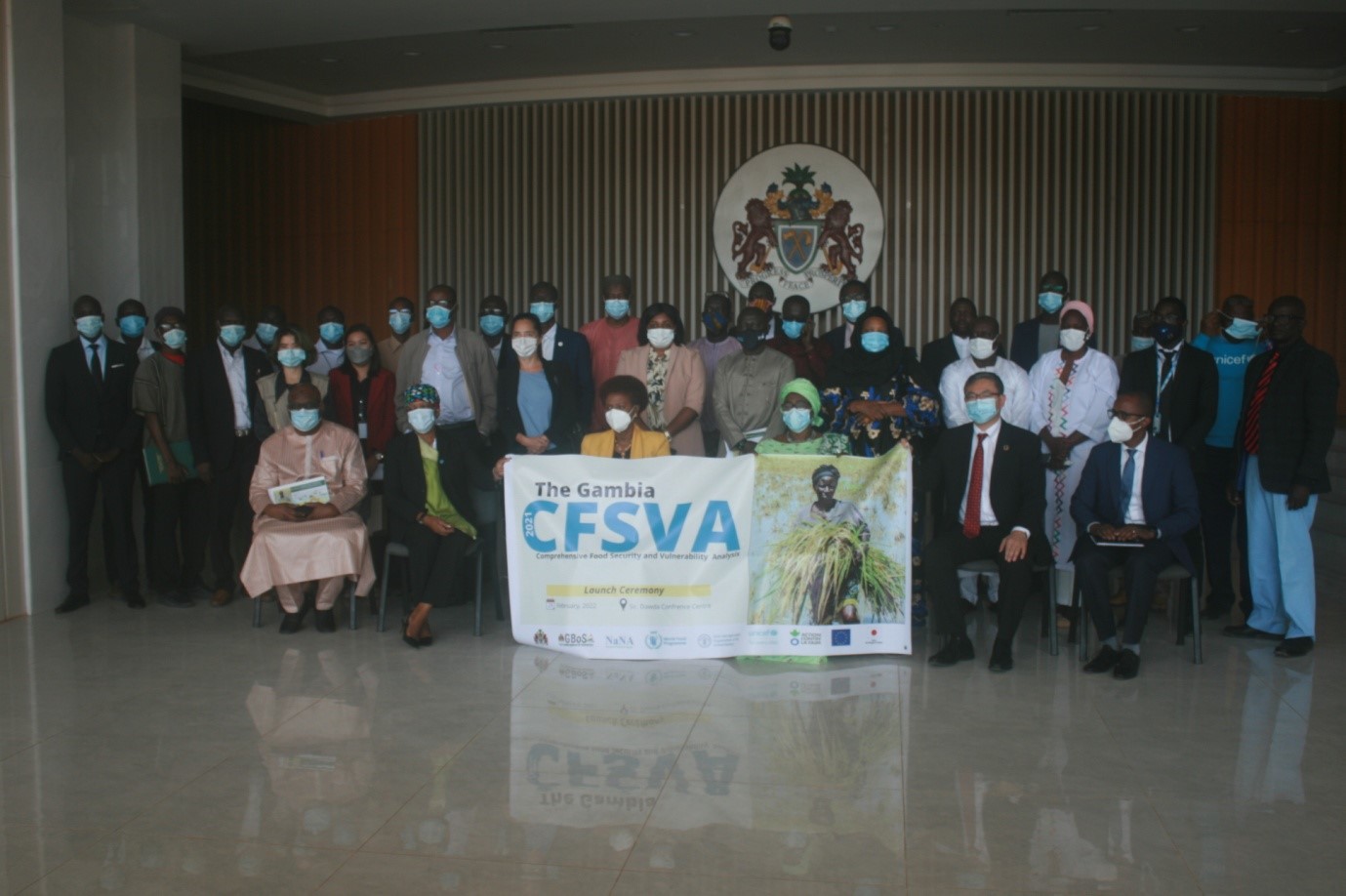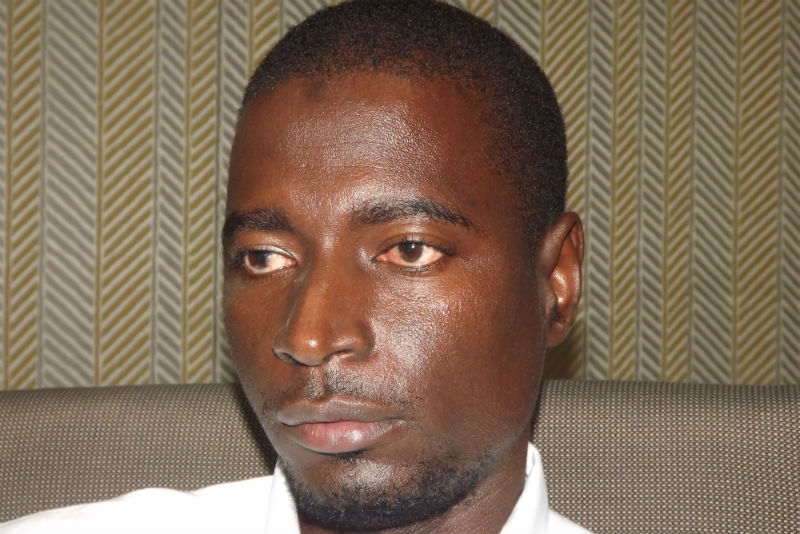By Yunus S Saliu
The Vice President of The Gambia has Monday launched the Comprehensive Food Security and Vulnerability Analysis (CFSVA) 2021 and reiterated her commitment to support efforts towards meeting the zero hunger targets.
Expressing her profound appreciation to the implementation team with the leadership of the World Food Program and the Ministry of Agriculture, Vice President Isatou Touray explained that the Gambia comprehensive Food Security and Vulnerability Analysis 2021 report is a remarkable achievement for The Gambia government.
“It supports in tracking progress made towards achieving Sustainable Development Goals more specifically SDG2-zero hunger but also the National Development Plan, and the report will serve as a baseline in our articulation of the National Pathways for Food Systems Transformation in Support of the 2030 Agenda,” she assured.
Importantly, she said, the report embeds the most important three (3) dimensions of food security, including food availability, accessibility and utilization but also, the impact of Covid-19 which summarise how and to what extent the country’s food and nutrition security is threatened.
VP Touray disclosed that The Gambia is highly vulnerable to climate shocks such as droughts, floods, windstorms in addition to the fluctuation of prices affecting the lives and the livelihoods of thousands of households mainly women.
In addition, she said, smallholder farmers who are highly dependant on rain are also affected by these shocks; “these smallholder farmers are the backbones of this fight to end hunger and achieve food self-sufficiency and security.”
She however noted that the study allows for a reflection on our approach to food security and nutrition with a view to examine our successes, bottlenecks, and opportunities, and on that basis, craft strategies to achieve zero hunger by 2030
Therefore, “the results of the analysis will provide significant inputs into sector policies and will provide baseline to the government’s approach on food security and nutrition in the next National Development Plan,” she added.
The Vice President who is also the Chairperson of the National Food Security Council noted that the government will use this study to generate actions with measurable outcomes that enable achievement of the 2030 Agenda.
Yasuhiro Tsumura, WFP Rep expressed delights on the official launching of the CFSVA 2021 saying it was a long process of preparation, data collection, data cleaning, data processing, data analysis and report preparation “which was a joint efforts and hard work of the Ministry of Agriculture, the Gambia Bureau of Statistics, WFP, FAO, UNICEF, and NGO partners such as Action Against Hunger and development partners, who have contributed either technically or financially or both.”
He described the CFSVA as a nationwide and in-depth study on food security and vulnerability, which has taken place in The Gambia every 5 years since 2011.
“This one is the 3rd one, The CFSVA has been in one of the most important studies in the country that helps understand the food and nutrition security in the country, who are food insecure or malnourished, where they live, how many they are, how they cope with the situation, and why they in such a situation,” he explained.
He highlighted on the severe impact of the Covid-19 pandemic on the country’s economy since its onset in early 2020, noting that the staple food prices have increased by 21 percent compound with 2016, 5 years ago and “more particularly to The Gambia, the tourism industry that occupies 20 percent of the country’s GDP is severely hit by this pandemic, and it has contributed to the increased poverty and vulnerability especially in the urban area.”
The UN Resident Coordinator, Seraphine Wakana said the CFSVA is the first such comprehensive study since the dawn of Covid-9 pandemic, saying the launch has demonstrated the government’s commitment towards the advancement of the Food and Nutrition Agenda for sustainable development in the country as enshrined in the NDP and the United Nations Cooperation Framework.
According to her, the United Nations has set ending hunger, achieving food security and improving nutritional status, and promoting sustainable agriculture as the second target of its Sustainable Development Goals (SDGs) for the year 2030.
She also dilated on Covid-19 pandemic which has created significant disruptions across The Gambia, “negatively impacting communities, local and national food systems and economies.”
She added that food and nutrition insecurity has a devastating impact on the lives and livelihood of families, communities and the nation.
Speaking on behalf of Minister of Agriculture, Mr Hassan Jallow, Permanent Secretary Ministry of Agriculture said the CFSVA provides the government timely and relevant information on household’s food and nutrition insecurity as well as their vulnerability status.
He disclosed that CFSVA 2021 was conducted at a critical time when Covid-19 has had a severe impact on the country’s economy and resultantly on households’ vulnerability.
He noted that it is alarming to note that the percentage of food insecure populaltin is higher in households that have access to cultivated land at 21 percent compared to non-farmer ones at 10.1 percent.
PS Jallow went further that the majority of farmers (75.5 percent) have 5 hectares or less cultivated land and mostly rain-fed, with low productivity and high cost of production “similarly, the livestock rearing households have a higher percentage of food insecure population at 16.2 percent compared to those not holding at 11.5 percent.
He however expressed the ministry’s appreciation for the support and cooperation of their development partners, namely WFP, FAO and other UN Agencies.





